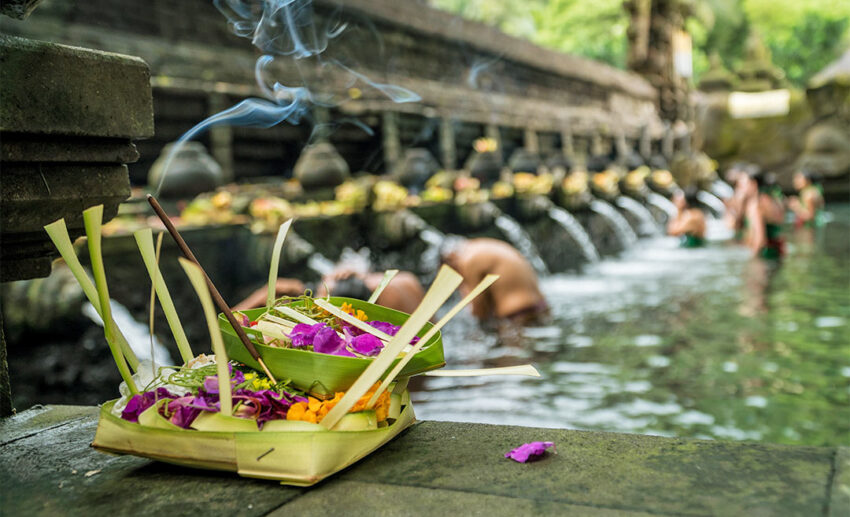Have you heard the latest news from the tropical paradise of Bali? The authorities have come up with a genius idea to ensure that tourists visiting this breathtaking island respect its culture and traditions by introducing a nifty little tool called the ‘do’s and don’ts’ card. It’s like having your own pocket-sized guide to being a responsible and culturally aware traveller.
The card will be given to tourists upon arrival at the airport. In recent months, a number of tourists have gotten into trouble for breaking local rules — from disrespecting sacred sites to breaking traffic rules and even working illegally. Frustrated officials are now considering new measures to guarantee that visitors to Indonesia respect the country’s laws.
The full set of regulations that visitors must follow is as follows:
What to do in Bali

- Be mindful of the sacredness of temples, pratimas, and other religious symbols.
- Respect the continuous ceremonial processions and ceremonies by the Balinese people, as well as their customs, traditions, arts, culture, and local wisdom.
- When visiting religious sites, tourist attractions, public venues, and activities in Bali, dress modestly, appropriately, and politely.
- Treat religious sites, tourist attractions, businesses, streets, and roadways with respect.
- Visit tourist places with licensed tour guides who understand Balinese natural conditions, customs, traditions, and local wisdom.
- Exchange foreign currency at licensed money changers (banks and non-banks) that display Bank Indonesia’s authorisation number and QR code logo.
- Make payments using the Indonesian Standard QR Code (QRIS).
- Conduct transactions using the Indonesian Rupiah.
- Follow Indonesia’s traffic laws, including having a valid international or national driving licence, dressing modestly, wearing a helmet, following traffic signs, not exceeding passenger capacity, and not driving under the influence of alcohol or drugs.
- If you must rent a vehicle, be sure it is a four-wheeler that is safe to drive and has been properly registered or a two-wheeler that is run by a legitimate company or organisation.
- Stay only at places that have the proper documentation to operate legally.
- Follow all visitor attraction and activity guidelines.
What not to do in Bali

- Trespass sacred territories: Steer clear of utamaning mandala and madyaning mandala, holy and sanctified spots like puras and pelinggihs — unless you’re there for a Balinese traditional ceremony, during which you must wear the appropriate attire, and you’re not menstruating.
- Touch holy trees.
- Desecrate sacred locations, temples, idols, and religious symbols by climbing them and taking indecent or naked images.
- Do not litter or pollute water sources, open water, rivers, oceans, or public spaces.
- Use single-use plastics like plastic bags, polystyrene (styrofoam), and plastic straws.
- Directly or indirectly through social media, engage in disruptive behaviour, verbally abuse authorities, create unnecessary conflict, and show a lack of respect for locals and other visitors.
- Work or perform business without government-issued documentation.
- Trade endangered species, cultural artefacts, religious objects, and drugs.
So, the next time you plan your Bali getaway, don’t forget to grab your ‘do’s and don’ts’ card. Let it be your trusty companion, guiding you through the cultural nuances of this remarkable island.
Remember, being an educated and respectful tourist goes a long way in ensuring a harmonious coexistence between locals and visitors. After all, it’s a privilege, not a right, to be able to visit and experience another country.



